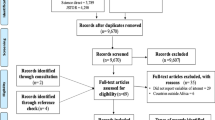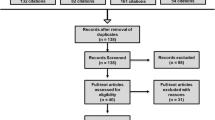Abstract
We conduct a stated preference analysis to understand the factors that individual households take into consideration to evacuate during hurricanes. In designing the contingent scenarios for evacuation, we randomly assign varying levels of hurricane characteristics (wind speed, lead time for landfall and the height of storm surge) combined with different types of emergency management options (voluntary versus mandatory evacuation order and a voucher with varying amounts to cover evacuation expenses). Findings indicate that individual households respond, in a non-linear fashion, to the intensity of hurricanes when making evacuation decisions. Respondents are also more likely to evacuate when the storm surge reaches a certain threshold. In terms of policy interventions, mandatory evacuation orders are more effective to increase the likelihood of evacuation. The potential intervention in the form of providing evacuation vouchers to assist households to cover their expenses (e.g. for food, water, transportation and lodging) also seems effective. We discuss policy implications of our findings.



Similar content being viewed by others
Notes
Though statutory variations exist across states in enforcing the mandatory evacuation order during an emergency, it is not automatically enforced and not necessarily interpreted as a legally binding order. In practice, the mandatory evacuation order is used to communicate the sheer urgency of the situation and to make additional resources available for those who are unable to evacuate voluntarily (Bohannon 2011; Wolshon et al. 2005). Also, see further discussion on this issue in Sect. 2.
A mandatory evacuation order is not considered as a legally binding order as it is neither effective nor beneficial (Bohannon 2011; Wolshon et al. 2005), and during a hurricane emergency, a mass arrest of residents who refuse to comply with a mandatory evacuation order is unforeseen. It is widely documented that a significant proportion of residents does not comply with mandatory evacuation orders due to their personal circumstances and preferences (Dow and Cutter 2000; Dash and Morrow 2001; Dostal 2015). However, the emergency management agencies vividly communicate the dangerous scenarios for those who decide to stay put. For instance, for an approaching hurricane, they are informed that intense storm with strong wind and high water could isolate those residents for extended periods and emergency rescue officials will not risk their lives to respond in mandatory evacuation areas during the storm. Those who decide not (or are unable) to comply with the official order are expected to remain fully self-sufficient during and immediately after the storm as basic utilities (e.g. electricity, water, phone and internet) and emergency services (e.g. police rescue, fire, ambulance) may not be available. So the difference in voluntary and mandatory evacuation orders can be seen as a mechanism to communicate the urgency and the severity of danger, and more from an operational point of view. For example, special transportation and traffic control measures are operated during mandatory evacuation orders, which are not common during voluntary evacuation orders (Wolshon et al. 2005; Mozumder et al. 2008).
References
Bateman JM, Edwards B (2002) Gender and evacuation: a closer look at why women are more likely to evacuate for hurricanes. Nat Hazards Rev 3(3):107–117
Bohannon D (2011) Fight or flight: on enforcing mandatory evacuations. Law practice today. A web-based magazine from American Bar Association, Special Edition. Dealing with Disasters—Emergency Preparedness, April 2011
Cameron TA (2005) Individual option prices for climate change mitigation. J Public Econ 89(2):283–301
Dash N, Morrow BH (2001) Return delays and evacuation order compliance: the case of Hurricane Georges and the Florida Keys. Glob Environ Change Part B Environ Hazards 2(3):119–128
Dash N, Gladwin H (2007) Evacuation decision making and behavioral responses: individual and household. Nat Hazards Rev 8(3):69–77
Dostal PJ (2015) Vulnerability of urban homebound older adults in disasters: a survey of evacuation preparedness. Disaster Med Public Health Prep 9(3):301–306
Dow K, Cutter SL (2000) Public orders and personal opinions: household strategies for hurricane risk assessment. Glob Environ Change Part B Environ Hazards 2(4):143–155
de Palma A, Ben-Akiva M, Brownstone D, Holt C, Magnac T, McFadden D, Moffatt P, Picard N, Train K, Wakker P, Walker J (2008) Risk, uncertainty and discrete choice models. Mark Lett 19(3):269–285
Gladwin H, Peacock WG (1997) Warning and evacuation: a night for hard houses. In: Morrow BH, Gladwin H (eds) Hurricane Andrew: gender and ethnicity and the sociology of disasters. Routledge, New York, pp 52–74
Graham-Tomasi T, Myers RJ (1990) Supply-side option value: further discussion. Land Econ 66(4):425–429
Greene WH (2012) Econometric analysis, 7th edn. Prentice Hall, Upper Saddle River
Kunreuther H, Michel-Kerjan E, Pauly M (2013) Making America more resilient toward natural disasters: a call for action. Environ Sci Policy Sustain Dev 55(4):15–23
McFadden D (1973) Conditional logit analysis of qualitative choice models. In: Zarembka P (ed) Frontiers of econometrics. Academic Press, New York
Mozumder P, Vásquez WF (2015) Hurricane and risk averting behavior: analyzing the cost of evacuation using revealed and stated preference data. Nat Hazards 79(1):81–92
Mozumder P, Raheem N, Talberth J, Berrens RP (2008) Investigating intended evacuation from wildfires in the wildland-urban interface: application of a bivariate probit model. For Policy Econ 10(6):415–423
NOAA (2013) Service assessment: hurricane/post-tropical cyclone Sandy, October 22–29, 2012. National Oceanic and Atmospheric Administration (NOAA), U.S. Department of Commerce, Silver Spring, Maryland
Petrolia DR, Bhattacharjee S (2010) Why don’t coastal residents choose to evacuate for hurricanes? Coast Manag 38(2):97–112
Petrolia DR, Bhattacharjee S, Hanson TR (2011) Heterogeneous evacuation responses to storm forecast attributes. Nat Hazards Rev 12(3):117–124
Shaw WD, Jakus PM, Riddel M (2012) Perceived arsenic-related mortality risks for smokers and non-smokers. Contemp Econ Policy 30(3):417–429
Smith VK (1983) Option value: a conceptual overview. South Econ J 49(3):654–668
Smith VK (1985) Supply uncertainty, option price and indirect benefit estimation. Land Econ 61(3):303–307
Smith SK, McCarty C (2009) Fleeing the storm(s): an examination of evacuation behavior during Florida’s 2004 hurricane season. Demography 46(1):127–145
Solís D, Thomas M, Letson D (2010) An empirical evaluation of the determinants of household hurricane evacuation choice. J Dev Agric Econ 2(3):188–196
Stein RM, Dueñas-Osorio L, Subramanian D (2010) Who evacuates when hurricanes approach? The role of risk, information, and location. Soc Sci Q 91(3):816–834
Van Willigen M, Edwards T, Edwards B, Hessee S (2002) Riding out the storm: experiences of the physically disabled during hurricanes Bonnie, Dennis, and Floyd. Nat Hazards Rev 3(3):98–106
Vásquez WF, Murray TJ, Mozumder P (2016) Understanding hurricane evacuation planning in the Northeastern and Mid-Atlantic United States. Nat Hazards Rev. doi:10.1061/(ASCE)NH.1527-6996.0000198
Whitehead JC (2003) One million dollars per mile? The opportunity costs of hurricane evacuation. Ocean Coast Manag 46(11–12):1069–1083
Whitehead JC (2005) Environmental risk and averting behavior: predictive validity of jointly estimated revealed and stated behavior data. Environ Resour Econ 32(3):301–316
Whitehead JC, Edwards B, Van Willigen M, Maiolo JR, Wilson K, Smith K (2000) Heading for higher ground: factors affecting real and hypothetical hurricane evacuation behavior. Glob Environ Change Part B Environ Hazards 2(4):133–142
Wolshon B, Urbina E, Wilmot C, Levitan M (2005) Review of policies and practices for hurricane evacuation. I: transportation planning, preparedness, and response. Nat Hazards Rev 6(3):129–142
Acknowledgements
We acknowledge support from the National Science Foundation (Award #0838683, #1204762), Florida Division of Emergency Management (DEM), and International Hurricane Research Center at the Florida International University, Miami, Florida. We are very thankful to the Co-Editor and two anonymous reviewers for the comments that substantially improved the paper. Nadia Seeteram, Eric Van Vleet, Subrina Tahsin, Fan Jiang, Sisi Meng and Chiradip Chatterjee have provided excellent research support. We are also thankful to survey participants and GFK (formerly Knowledge Networks) staff members who implemented the survey. However, the opinions expressed here are solely of the authors.
Author information
Authors and Affiliations
Corresponding author
Rights and permissions
About this article
Cite this article
Mozumder, P., Vásquez, W.F. Understanding Hurricane Evacuation Decisions Under Contingent Scenarios: A Stated Preference Approach. Environ Resource Econ 71, 407–425 (2018). https://doi.org/10.1007/s10640-017-0163-2
Accepted:
Published:
Issue Date:
DOI: https://doi.org/10.1007/s10640-017-0163-2




